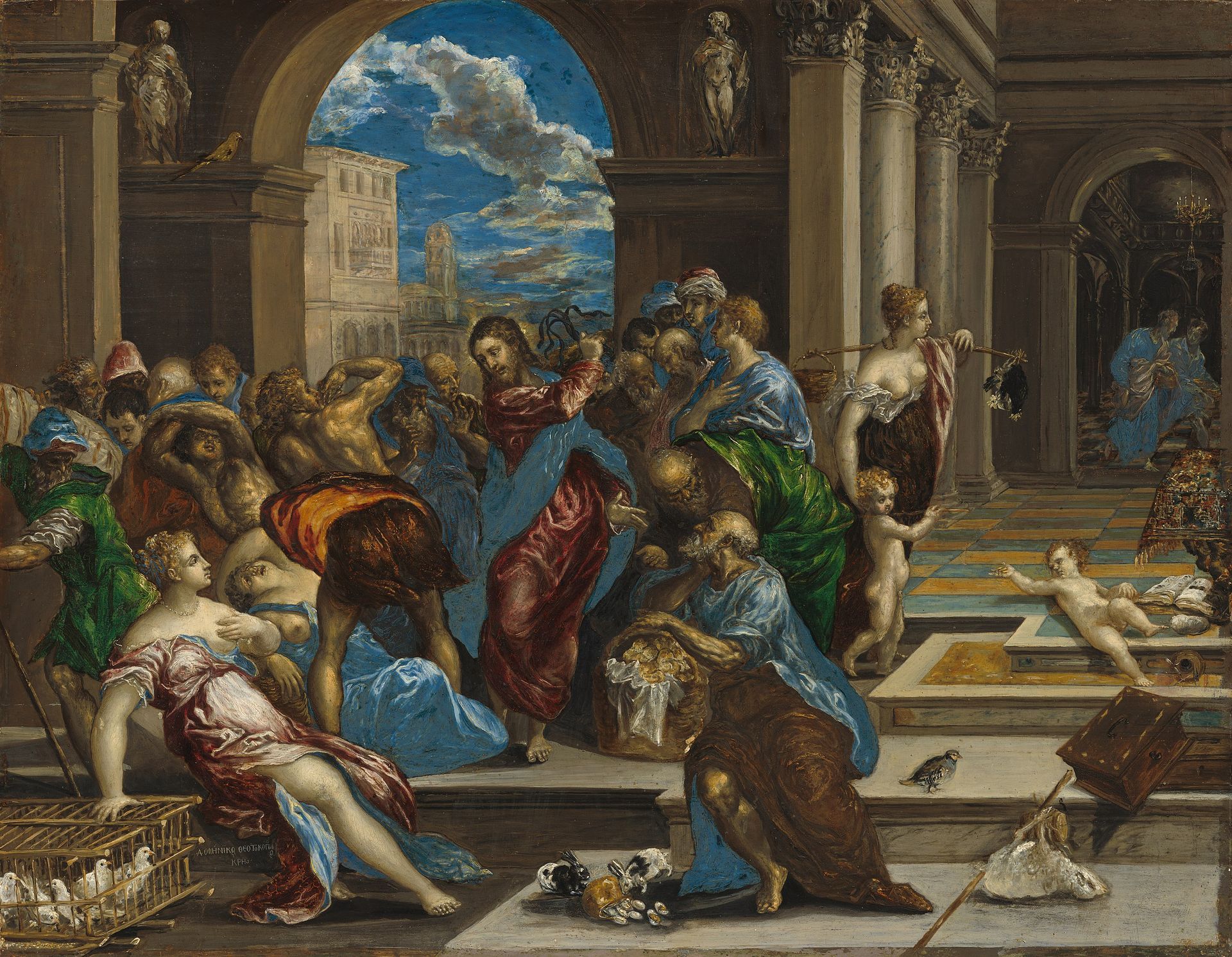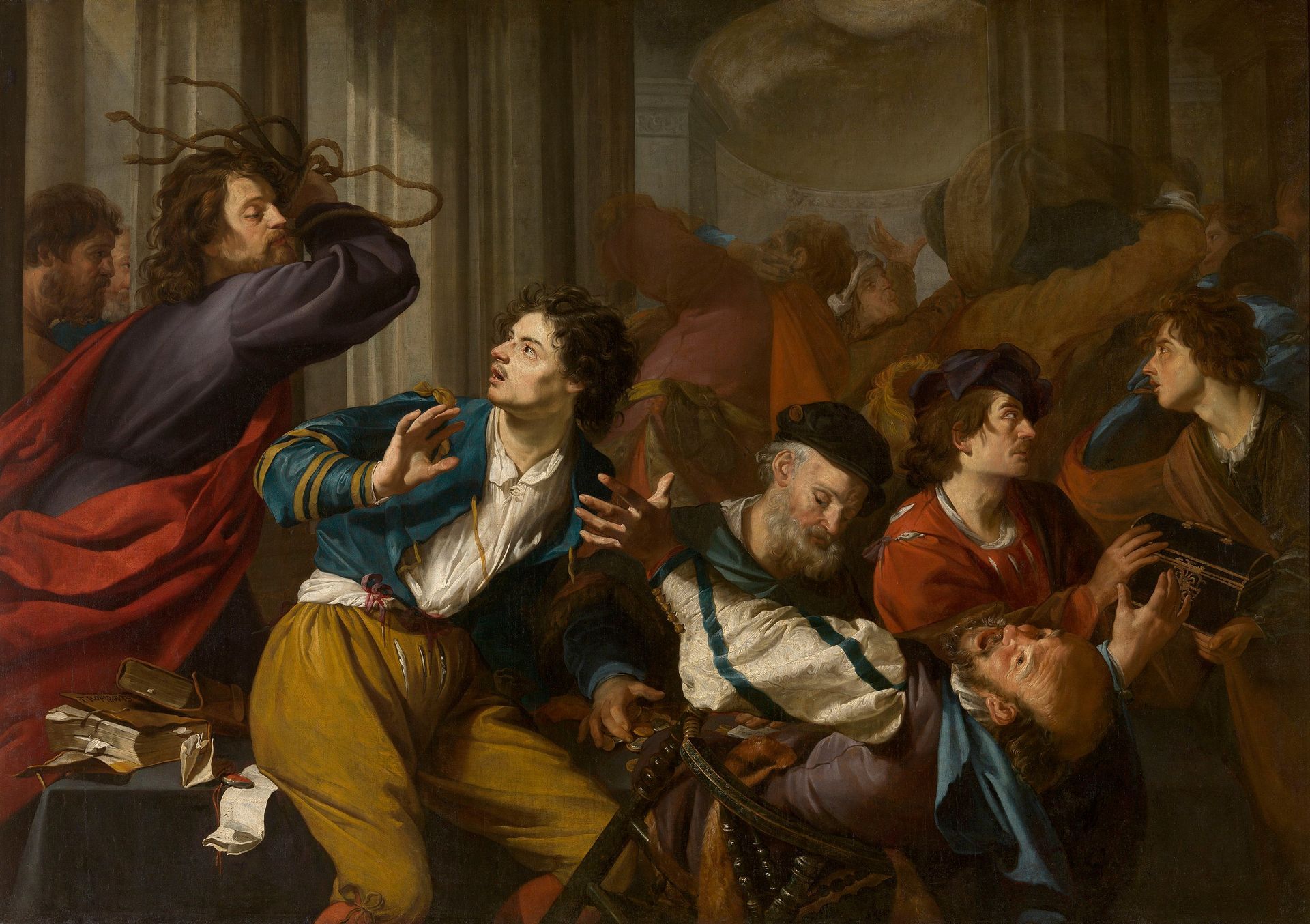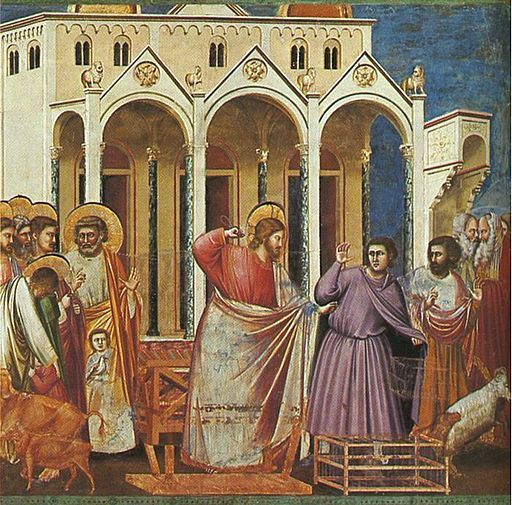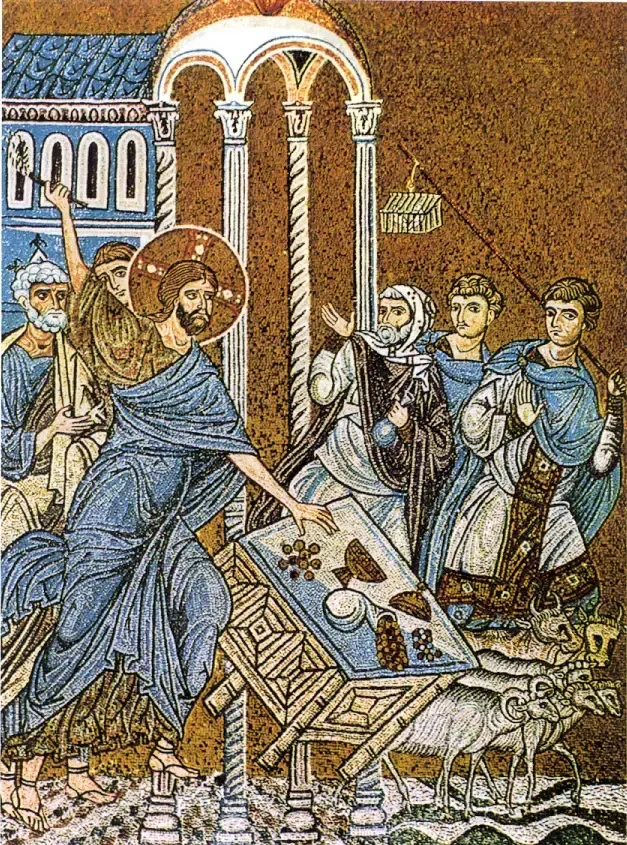Message of Abbot Paul - Sunday - 3rd March 2024
Abbot Paul • March 2, 2024
Yesterday I had the great joy of being present at the marriage of two very close friends. Although it was a civil ceremony, it was extremely well organised and the texts used were deeply moving. The floral displays were magnificent and the festal luncheon quite delicious. I was delighted to meet so many interesting guests, who had come from all over the world to be present at the event. The heavy snow made me wonder whether I would ever manage to join them, but I did and in good time, and the return journey home in the evening was uneventful. Today they will come to church for a simple act of blessing and thanksgiving. I pray that the good Lord will bless them abundantly and fill their hearts with joy every day of their lives.
Our Gospel passage this Sunday comes from John, (Jn 2: 13-25), and centres on what we call the Cleansing of the Temple. John recounts, “Just before the Jewish Passover, Jesus went up to Jerusalem, and, in the Temple, he found people selling cattle and sheep and pigeons, and the money-changers sitting at their counters there. Making a whip out of some cord, he drove them all out of the Temple, cattle and sheep as well, scattered the money-changers’ coins, knocked their tables over and said to the pigeon-sellers, ‘Take all this out of here and stop turning my Father’s house into a market.’ Then his disciples remembered the words of scripture: Zeal for your house will devour me.” In the Synoptic Gospels, Jesus’ words are even more severe, for he accuses those buying and selling of converting the Temple into a “den of thieves.” Jesus and the Apostles objected, at times violently, as in this case, to turning the practice of religion into a money-making business. However, John goes much further than that, for now Jesus has much more to say. “Jews intervened and said, ‘What sign can you show us to justify what you have done?’ Jesus answered, ‘Destroy this sanctuary, and in three days I will raise it up.’ The Jews replied, ‘It has taken forty-six years to build this sanctuary: are you going to raise it up in three days?’ But he was speaking of the sanctuary that was his body, and when Jesus rose from the dead, his disciples remembered that he had said this, and they believed the scripture and the words he had said.” The Jewish authorities ask for a sign. “Why did you to do that and on whose authority?” Jesus takes the conversation to another plane. It is not this Temple in Jerusalem, manmade of stone, that he is talking about, but his own Body, the Mystical Body of the Church and Temple of the Holy Spirit, which crucified, dead and buried, will rise again on the third day. The disciples would only make sense of much that Jesus said and did after his resurrection, once they were enlightened by the Pentecostal gift of the Holy Spirit.
John concludes this episode in the life of Jesus by telling us that, “During his stay in Jerusalem for the Passover many believed in his name when they saw the signs that he gave, but Jesus knew them all and did not trust himself to them; he never needed evidence about any man; he could tell what a man had in him.” That phrase about telling “what a man had in him” reminds us of the all-seeing eye of God, the God who is omniscient and knows all things. It’s a consoling thought to be told that God sees into the very depths of our being, that nothing is hidden from his watchful eye. This means that we can stand with confidence in his presence, without fear or shame, but in humility and thanksgiving for his generosity and merciful love.













